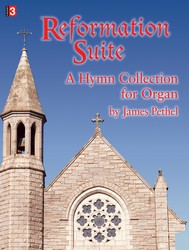- |
User Links
In Christ There Is No East or West
In Christ there is no east or west (Perry)
Author: Michael A. Perry (1982)Tune: MCKEE
Published in 7 hymnals
Printable scores: MusicXMLAudio files: MIDI
Author: Michael A. Perry
 Initially studying mathematics and physics at Dulwich College, Michael A. Perry (b. Beckenham, Kent, England, 1942; d. England, 1996) was headed for a career in the sciences. However, after one year of study in physics at the University of London, he transferred to Oak Hill College to study theology. He also studied at Ridley Hall, Cambridge, and received a M.Phil. from the University of Southhampton in 1973. Ordained a priest in the Church of England in 1966, Perry served the parish of St. Helen's in Liverpool as a youth worker and evangelist. From 1972 to 1981 he was the vicar of Bitterne in Southhampton and from 1981 to 1989, rector of Eversley in Hampshire and chaplain at the Police Staff College. He then became vicar of Tonbridge in Ke… Go to person page >
Initially studying mathematics and physics at Dulwich College, Michael A. Perry (b. Beckenham, Kent, England, 1942; d. England, 1996) was headed for a career in the sciences. However, after one year of study in physics at the University of London, he transferred to Oak Hill College to study theology. He also studied at Ridley Hall, Cambridge, and received a M.Phil. from the University of Southhampton in 1973. Ordained a priest in the Church of England in 1966, Perry served the parish of St. Helen's in Liverpool as a youth worker and evangelist. From 1972 to 1981 he was the vicar of Bitterne in Southhampton and from 1981 to 1989, rector of Eversley in Hampshire and chaplain at the Police Staff College. He then became vicar of Tonbridge in Ke… Go to person page >Text Information
| First Line: | In Christ there is no east or west (Perry) |
| Title: | In Christ There Is No East or West |
| Author: | Michael A. Perry (1982) |
| Meter: | 8.6.8.6 |
| Source: | John Oxenham, 1905, after a line by; The Book of Common Prayer |
| Language: | English |
Notes
Scripture References:
st. 1 = Isa. 49:12, Luke 13:29, Acts 17:26, Col. 3:11, Gal. 3:28
st. 2 = 2 Cor. 5:18-19
Many hymnals contain William A. Dunkerley's "In Christ There Is No East or West," a hymn text written in 1908 by Dunkerley under the pseudonym of John Oxenham. However, it is ironic that this text about the worldwide church has been considered by many in the twentieth century to have an exclusively male emphasis. Consequently, various recent hymnal editors have altered the text. Michael A. Perry (PHH 299) concluded that the revision needed to be so radical that an entirely new text would be a better choice. Thus Perry kept only Dunkerley's opening line and wrote a new text on the same theme. Perry's text was published in Hymns for Today's Church in 1982.
Based on New Testament passages such as Galatians 3:28 and 1 John 4:7-12, this text describes certain ideal characteristics of the church: its comprehensiveness (st. 1), unity (st. 2, 5), love (st. 3), and holiness (st. 4), ideals for which we must continually work and pray. Perry says of his text, "The spirit of reconciliation was invoked from the Pauline Epistles, and the spirit of fellowship from the Johanine."
Liturgical Use:
For Worldwide Communion, All Nations Sunday, All Saints Day, and other church festivals such as Pentecost; splendid for ecumenical services.
--Psalter Hymnal Handbook
Tune
MCKEEMC KEE has an interesting history. According to a letter from Charles V. Stanford (PHH 512) to Samuel Coleridge-Taylor (who arranged the tune for piano in his Twenty-Four Negro Melodies, 1905), MC KEE was originally an Irish tune taken to the United States and adapted by African American slaves. It…


 My Starred Hymns
My Starred Hymns


